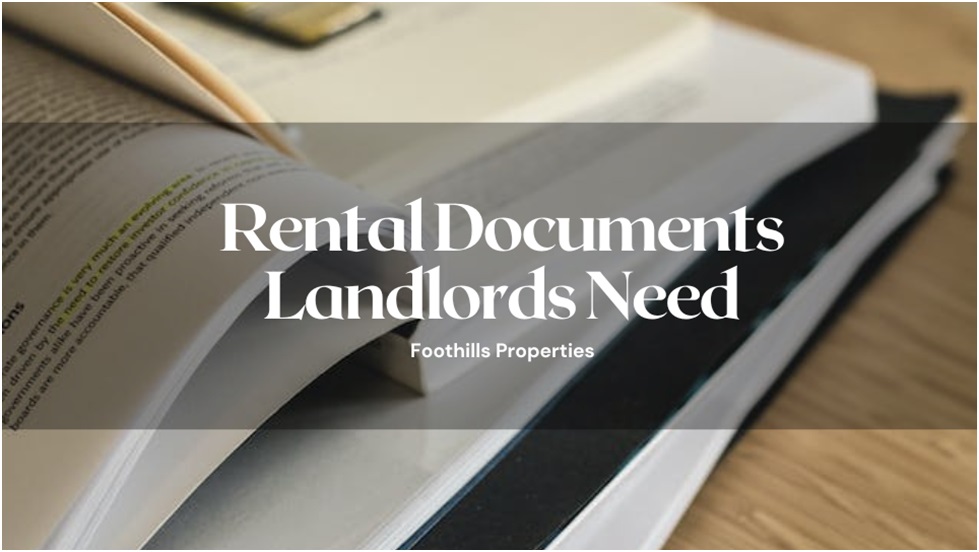
The world of property rental can be quite complex, both for landlords and tenants. One of the critical aspects of this process is ensuring that all necessary rental documents are in place.
These documents are essential for legal compliance, protecting the interests of both parties and facilitating smooth interactions.
Having the proper paperwork helps landlords manage their properties more efficiently and ensures they are prepared for any potential disputes or misunderstandings.
This article will guide you through the key rental documents every landlord needs, the benefits of keeping these records, and what to collect from tenants to ensure a smooth rental experience.
Benefits of Keeping Rental Documents
Maintaining accurate and comprehensive rental documents offers numerous benefits for landlords:
Legal Protection
Proper documentation can protect you from legal disputes by clearly outlining the terms and conditions of the rental agreement, including rent amount, due dates, security deposits, and lease duration. This can be crucial evidence in court if any disagreements arise.
Efficient Management
Organized records make managing your properties, tracking payments, and handling maintenance requests easier. Detailed logs of all transactions and communications can help you quickly address issues and ensure everything runs smoothly.
Tenant Relations
Transparent documentation fosters trust and clear communication with tenants, reducing misunderstandings and conflicts. Providing tenants with copies of all signed documents and maintaining a record of all interactions can create a more positive and cooperative relationship.

Regulatory Compliance
Keeping the necessary documents ensures compliance with local, state, and federal regulations, minimizing legal risks. This includes lease agreements, inspection reports, repair logs, and tenant correspondence, which can be essential during audits or investigations by regulatory bodies.
Essential Documents Every Landlord Should Have
Lease Agreement
The lease agreement is the cornerstone of any rental arrangement. This legally binding document outlines the terms and conditions of the tenancy, including:
- Rent amount and payment schedule
- Security deposit details
- Duration of the lease (fixed-term or month-to-month)
- Responsibilities of both landlord and tenant
- Rules and regulations for the property
Lease Amendments
Over time, you may need to change the original lease agreement. Lease amendments accommodate these adjustments without requiring a completely new lease. Common reasons for amendments include:
- Rent increases
- Changes in pet policies
Addition or removal of tenants
Tenant Notices
Tenant notices are written communications from the landlord to the tenant regarding various aspects of the tenancy. Essential types of notices include:
- Notice to Pay Rent or Quit: Issued when a tenant fails to pay rent on time, specifying the deadline to pay or vacate the property.
- Notice to Cure or Quit: Given when a tenant violates lease terms (e.g., unauthorized pets), providing a chance to rectify the issue.
- Notice of Termination: Used to end the tenancy due to lease expiration or the landlord's decision not to renew.

Properly documented notices help establish a clear record of communication and actions taken.
Rental Inspection Records
Regular property inspections are essential for maintaining the condition of your rental units. Inspection records should include:
- Move-in and move-out inspection reports
- Photographs documenting the property's condition
- Notes on any damages, repairs, or maintenance needed
These records help protect your investment and provide evidence in case of security deposit disputes.
Essential Documents Landlords Must Provide to Tenants
Lead-Based Paint Disclosure
Federal law requires landlords to provide a lead-based paint disclosure for properties built before 1978. This document informs tenants about potential lead hazards and includes:
- The "Protect Your Family from Lead in Your Home" pamphlet
- Any known information about lead-based paint on the property
Failure to provide this disclosure can result in significant fines and legal liabilities.
Security Deposit Receipt
When collecting a security deposit, it's essential to provide tenants with a receipt that includes:
- The amount of the deposit
- The purpose of the deposit (e.g., damage or unpaid rent)
- The conditions under which the deposit will be refunded
This receipt ensures transparency and helps avoid disputes over deposit returns.
What to Collect from Tenants?
Rental Application
The rental application is the first step in screening potential tenants. It should gather basic information, such as:
- Full name and contact information
- Employment history and income
- Rental history and references
- Consent to background and credit checks

A comprehensive rental application helps you make informed decisions about prospective tenants.
Permission for Background Check
Before conducting background checks, obtain written consent from applicants. This permission should cover the following:
- Credit reports
- Criminal background checks
- Rental history verification
Having explicit consent protects you from legal issues and ensures transparency with applicants.
Proof of Income
To assess a tenant's ability to pay rent, request proof of income, such as:
- Recent pay stubs
- Bank statements
- Tax returns or W-2 forms
Verifying income helps you choose financially stable tenants.
Reference Letters
Reference letters from previous landlords or employers provide valuable insights into a tenant's reliability and character. Key points to include are:
- Confirmation of past tenancy or employment
- Comments on payment history and behavior
- Any additional relevant information
Collecting reference letters adds more security to your tenant screening process.
Final Words
Maintaining well-organized and comprehensive rental documents is essential for effective property management and legal compliance as a landlord.
By understanding the importance of these documents and implementing best practices for their use, you can protect your investments, foster positive tenant relationships, and ensure a smooth rental experience.
Trust the experts at Foothills Properties to help you manage your rental properties with ease and professionalism. Our dedicated team offers comprehensive services, from tenant screening to maintenance and financial management, ensuring your investment is protected and profitable.








